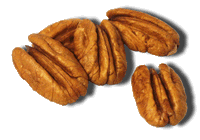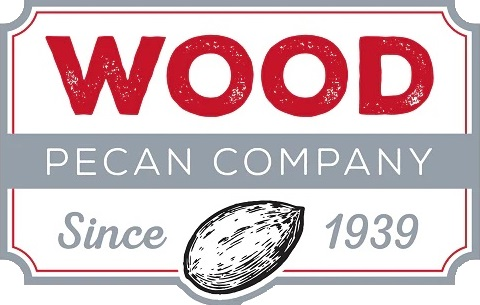How Do You Pronounce 'Pecan’?

Is it pee-can, pah-kahn, or something else entirely?
Hold on to your hats, folks. While the pecan itself is a tasty, rather unassuming nut, the question of how to pronounce it can rile up even the most mild-mannered of Southerners. This is one divisive pronunciation.
How do you say pecan? It’s an eternal question, much like “Do you put sugar in your cornbread?” or “Where is over yonder?” Pecans aren’t just part of our favorite pies. They’re part of the Southern landscape and the fabric of Southern agriculture. You can scarcely have Thanksgiving in the South without a pecan pie, and you can scarcely drive a few miles on the interstate without seeing a roadside stand selling pecans in autumn (the same stands that sell easier-to-pronounce peaches in summer).
Pecans (Carya illinoinensis) are a species of hickory tree in the genus Carya (from “karyon,” which is “nut” in ancient Greek). Pecan trees are native to Mexico and the southern United States. Top producers of pecans include Georgia and Texas, though you’ll find heirloom pecan pie recipes up and down the region from the Texas Hill Country to the Gulf Coast, through Tennessee, Virginia, and Maryland, too. There’s not a Southern state the pecan hasn’t permeated, which makes our culinary landscape slightly crunchier—and leagues more delicious.
To the question at hand: What accounts for the differences in pecan pronunciation? It’s not a regional difference or a state difference, because if you visit any neighborhood in the South, you’re sure to find next-door neighbors who pronounce the word differently. The way we see it—or hear it, in this case—there are six widely used pronunciations for the word pecan. (But if you have others, we’d love to know.) In no particular order, they are:
pah-KAHN
puh-CAN
PEE-can
PEE-kahn
pee-KAHN
pee-CAN
Whew.
That’s quite a few options, though of course are countless more possibilities out there. Which pecan camp are you in? Do you pronounce the rounded vowels of puh-KAHN or the smiling annunciation of PEE-can?
Now, this isn’t scientific. We don’t have full-fledged polling data to back it up, but we did ask the Southern Living office, and pronunciations here are rather varied. Of those polled, 10 people say puh-KAHN, 4 say PEE-can, and 2 say puh-can or puh-CAN, a hybrid of the former pronunciations with two similarly stressed syllables. That doesn’t quite match up with the findings of the National Pecan Shellers Association. When they conducted a pronunciation poll, they found that 45 percent of Southerners and around 70 percent of Northerners say PEE-can.
Although, to avoid the pronunciation issue, you could always just call them Carya illinoinensis, though, admittedly, not everyone will be in the know. Also, “Carya illinoinensis pie” isn’t nearly as catchy to say as pecan pie (or as easy to spell).
No matter which way you say it—or which way you slice it—pecans make perfect pies, and they provide plenty of conversation once you hear a differing pronunciation. That’s the beauty of pecans. We all have our own inflections and emphases, but they’re delicious all the same. There are a million and one ways to say it, and we wouldn’t have it any other way.
Whether they’re roasted, covered in chocolate, or baked into a pie, pecans have always been one of our favorite Southern harvests. Have you thanked a pecan farmer lately? The next time you’re savoring a slice of pecan pie, remember to thank your local pecan producers—then ask them how they pronounce it. The answer may surprise you.


